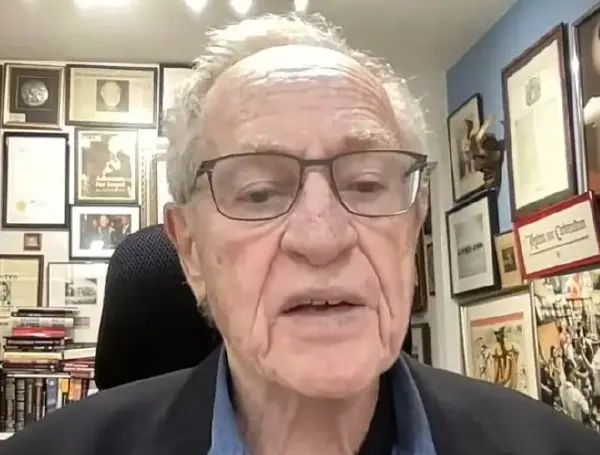Harvard Law Professor Alan Dershowitz asserted on Newsmax Thursday that the Supreme Court overlooked a crucial dilemma during its hearing on nationwide injunctions. Speaking on “The Record with Greta Van Susteren,” Dershowitz contended that the justices “failed to ask the hardest question” regarding conflicting rulings from different district judges on the same executive action.
The Supreme Court heard arguments on Thursday concerning the increasingly common practice of district judges issuing universal injunctions, a tactic frequently employed by left-leaning plaintiffs to block the executive actions of the Trump administration.
READ: Trump Lashes Out At Walmart, Demands Retail Giant “Eat the Tariffs”
Dershowitz highlighted the problematic scenario that arises when one district judge deems an executive order unconstitutional and issues an injunction, while another judge in a different state upholds its legality. “They really didn’t address that question, because that’s what really will happen,” Dershowitz stated.
Addressing the specific case before the Court, Dershowitz noted that all four lower court judges had ruled the executive action unconstitutional. However, he dismissed this consistency as a result of strategic judge selection by the plaintiffs. “In this case, all four judges ruled that it was unconstitutional. That’s because, of course, the plaintiffs’ judge shopped and went to judges who they thought would give them favorable rulings,” he explained.
Dershowitz predicted a lack of a definitive ruling from the Supreme Court, suggesting that either outcome – allowing or prohibiting nationwide injunctions – would create significant chaos. He proposed a legislative solution, urging Congress to establish a specialized court, similar to the FISA Court, composed of five judges with the sole authority to issue nationwide injunctions.
READ: DHS Fires Back At “Fake News” Narratives During National Police Week
The case before the Supreme Court comes after the Court previously paused the Trump administration’s efforts to expedite the deportation of Tren de Aragua (TdA) members under the Alien Enemies Act of 1798. In April, the Court ruled that individuals targeted for removal must have the opportunity to contest their deportation in court, temporarily blocking the enforcement of an executive order aimed at using the 18th-century statute to remove gang-affiliated Venezuelans.
The executive orders in question, signed by President Donald Trump, labeled TdA, MS-13, and several Mexican drug cartels as foreign terrorist organizations. The Alien Enemies Act was formally invoked on March 15 to accelerate the removal of TdA operatives, citing national security concerns.
Please make a small donation to the Tampa Free Press to help sustain independent journalism. Your contribution enables us to continue delivering high-quality, local, and national news coverage.
Connect with us: Follow the Tampa Free Press on Facebook and Twitter for breaking news and updates.
Sign up: Subscribe to our free newsletter for a curated selection of top stories delivered straight to your inbox.
